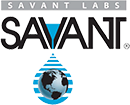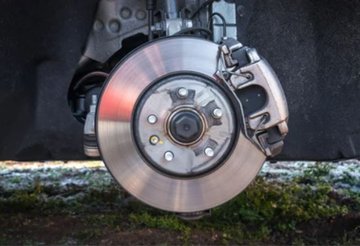Brake Fluid Testing
Savant Labs offer a range of brake fluid testing to ensure the safe and efficient operation of today’s demanding motor vehicle braking systems. Brake fluid testing is performed for the major brake fluid standards such as FMVSS No. 571 116, DOT 3, DOT 4, DOT 5.1, SAE J1703 and J1704 and ISO 4925. Savant Labs can assist with your testing needs whether the fluid is for standard braking systems, ABS braking systems, T/C braking systems, ESP braking systems, or electronic braking systems.
Most brake fluids contain unique properties to protect or enhance the braking system.
Wet and dry boiling point – High boiling points protect against overheating, brake fade, and performance decline due to water absorption.
Low-temperature viscosity - At sub-zero temperatures of -40˚C, the brake fluids tend to “thicken” and it becomes difficult to ensure that it can still flow freely.
Corrosion protection - Brake fluid itself does not corrode but when the additive package breaks down, the brake fluid no longer has adequate anticorrosive inhibitors so corrosion of internal brake hydraulic components may occur.
Compatibility with braking system components - Compatibility is determined by the chemical characteristics of the fluid, so the brake system materials must be compatible with the brake fluid used. The swelling of the rubber components (such as piston/cylinder rubber seals and similar), as well as the friction, is one of the most common issues that cause the contamination into the brake system.
Long-term stability - extended service life while improving the corrosion resistance of the main components of the braking system.
Savant Labs is positioned to assist with the necessary brake fluid testing to meet the specifications now in place for vehicle braking systems.
International Methods and Standards
ASTM D445 Kinematic Viscosity
SAE J1703, J1704 & ISO4925 COM Compatibility Brake Fluid
SAE J1703 & J1704 COR Corrosion Test
SAE J1703, J1704 & ISO 4925 CS Chemical Stability
SAE J1703, J1704 & ISO 4925 ERBP Equilibrium Reflux Boiling Point
SAE J1703 & J1704 ESBR Effect on SBR Cups
SAE J1703, J1704 & ISO 4925 ESBR Effect on SBR Cups
SAE J1703, J1704 & ISO 4925 HTS High-Temperature Stability
SAE J1703, J1704 & ISO 4925 LTF Fluidity At Low Temperature
SAE J1703 & J1704 OR Oxidation Resistance
SAE J1703 & J1704 pH pH Determination
SAE J1703, J1704 & ISO 4925 WERBP Wet Equil. Reflux Boiling Point
SAE J1703, J1704 & ISO 4925 WTT Water Tolerance
SAVLAB MIC Microscopy
SAVLAB pH-E70 pH Determination
SAVLAB RBP Reflux Boiling Point

